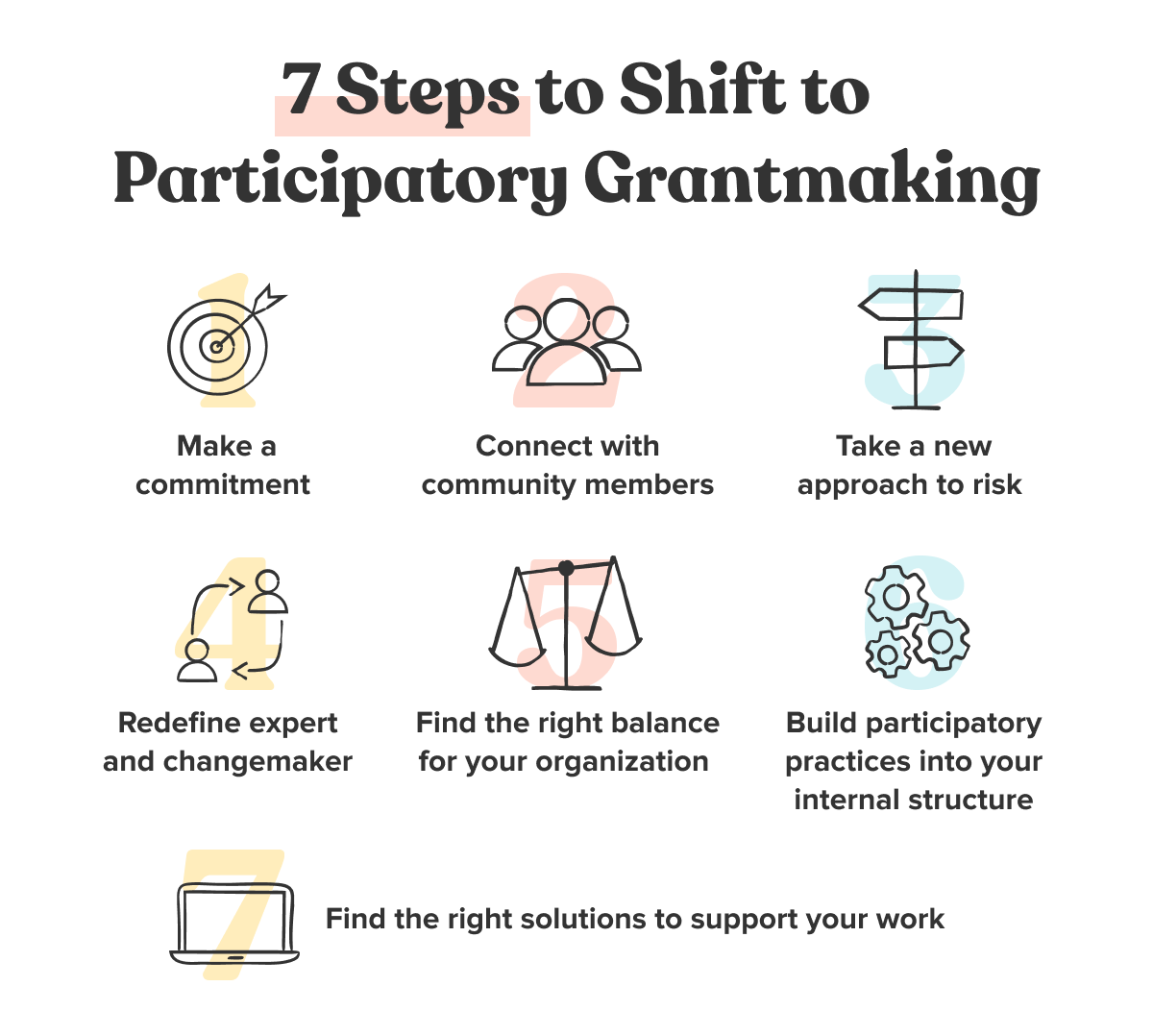Participatory Grant-making
Participatory grant-making (also known as democratic funding governance or community capital stewardship) cedes decision-making power about grants to the communities impacted by the funding decisions.

What are some key problems that this process can solve?
Participatory grant-making is an alternative to top-down philanthropic practices whereby organizations will give money yet hold onto their power. In other words, those most frequently in a position to give are often least likely to understand what is most needed. Top-down approaches also do not address root causes of harm.
How does this process work?
Participatory grant-making can work in a variety of different ways. For example, some funds will not include any staff or trustees from the foundations themselves on the grant making panels and will instead be entirely peer-led, where everyone making funding decisions is a member of the population or community the fund supports (Source). Other funds will have some kind of blended system where peers and staff work together to make and enact funding decisions.
|
№ OF PEOPLE |
inform | Consult | Involve | Collaborate | Empower |
|---|---|---|---|---|---|
1—100 pPL |
|||||
100—1k pPL |
|||||
1k—10k pPL |
|||||
10k—100k pPL |
|||||
100k—1M pPL |
|||||
1M—10M pPL |
|||||
10M—100M pPL |
|||||
100M—1B pPL |
|||||
1B+ pPL |
|||||
Global |